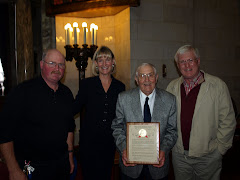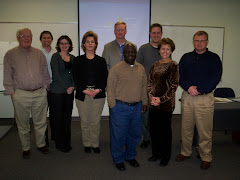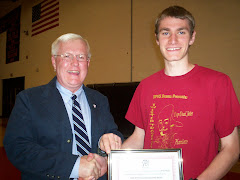COURSE OVERVIEW
EDU782 is a classic example of “bridging theory into
practice.” It starts with the
proposition that what we value, our philosophy, drives how we lead ourselves
and others. The assignments in the
course will help students to test this proposition for validity and reliability
as a guide to career – and personal – success in the “real world.” Values determine what we do and what we do
not do.
For example, during the course, assignments ask students to
assess the value of “trend forecasting” as a resource for leadership. How much ought we to factor possible and
probable future trends into our decision making as leaders? Of what value is “strategic foresight” –
another way of describing trend forecasting – to leadership? How much should we let it shape decisions
today in ways that prepare us to avoid dangers and seize opportunities in the
future?
For instance, how
much budget ought we to set aside today to conduct research and development,
R&D, to prepare for likely future trends and changes in workforce
development needs, shifts in educational technology, e.g., from laptops and
desktops to M-Learning (mobile learning) with iPods and “smart phones” as
learning platforms?
Blackberry cell
phones were a technology of choice at one time.
Even the President of the United States used it. However, Blackberry did not factor a future
in which video and visuals would drive sales of handheld telecommunications devices. Blackberry was wildly successful, for a time,
but it forgot to factor the future. Now
half of its “prime time” value is gone.
It may be too late for it to catch up.
The same logic applies to adult education. What works today may not work in the
future. This is why “trend forecasting”
or “strategic foresight” ought to be of value to leadership today in order to
set aside resources to plan for and seize future opportunities. What we value drives decision making. EDU782 challenges students to clarify what is
of value to them in order for them to use these values to develop a coherent philosophy
of leadership for adult education that empowers them to “put first things
first.’”
Trend forecasting is one example of the kinds of values
clarification assignments in EDU782. Others
include ranking and factoring the value of “risk” in decision making. How much risk are we willing to take for
ourselves and others? In our times of
chaos and complexity, how much risk can we avoid? How much risk can we tolerate as
individuals? How might this tolerance “spill
over” into our leadership?
EDU782 provides time-tested, field-tested techniques to help
students discover what is of importance to them, since the demands on leadership
today will severely test these values.
How we “walk our talk” about what is of value, in turn, will draw or
repel followers. Without followers, we
cannot lead. EDU782 helps students to
prepare a philosophy to help them to “walk their talk” for career success as
leaders.















No comments:
Post a Comment